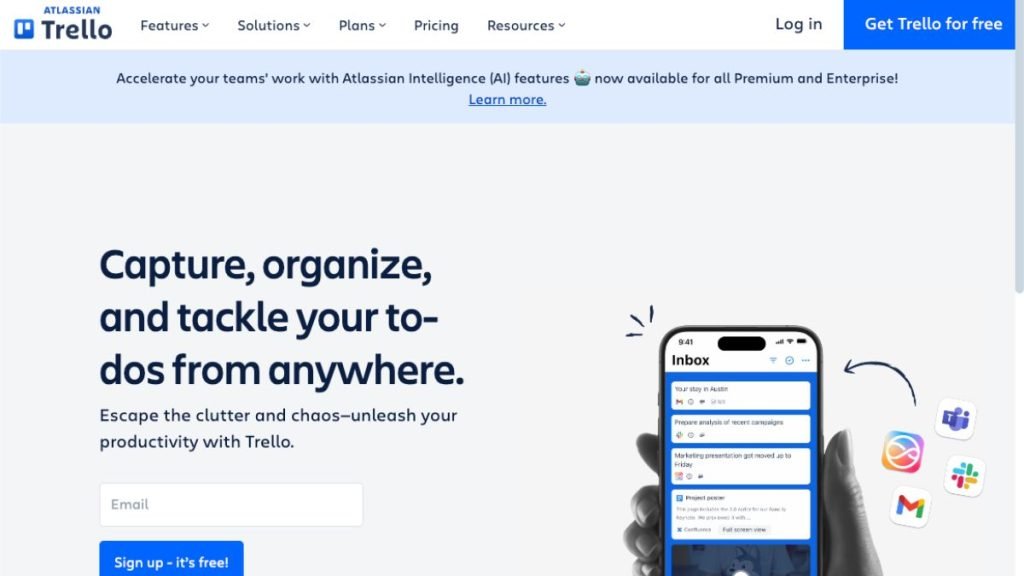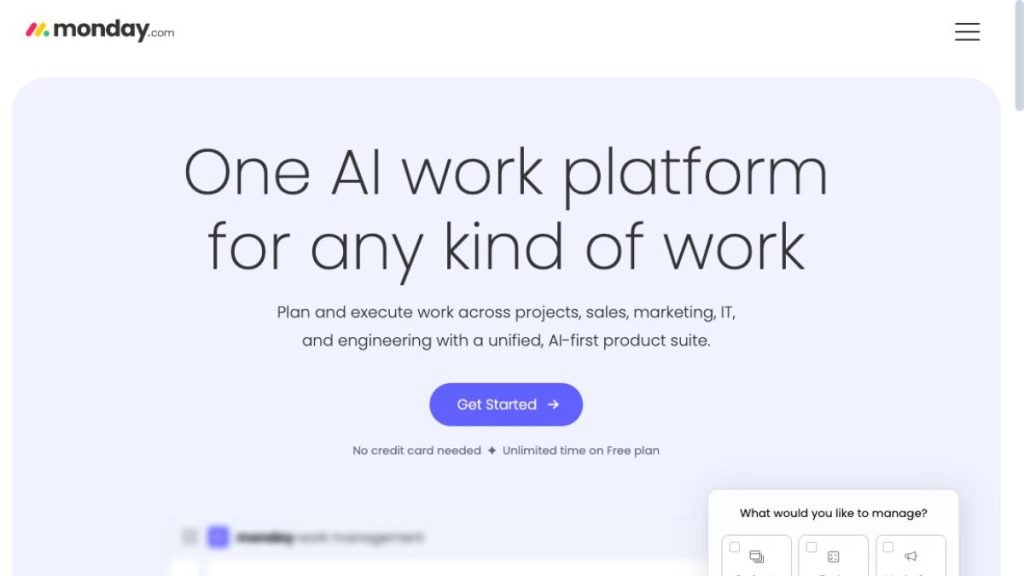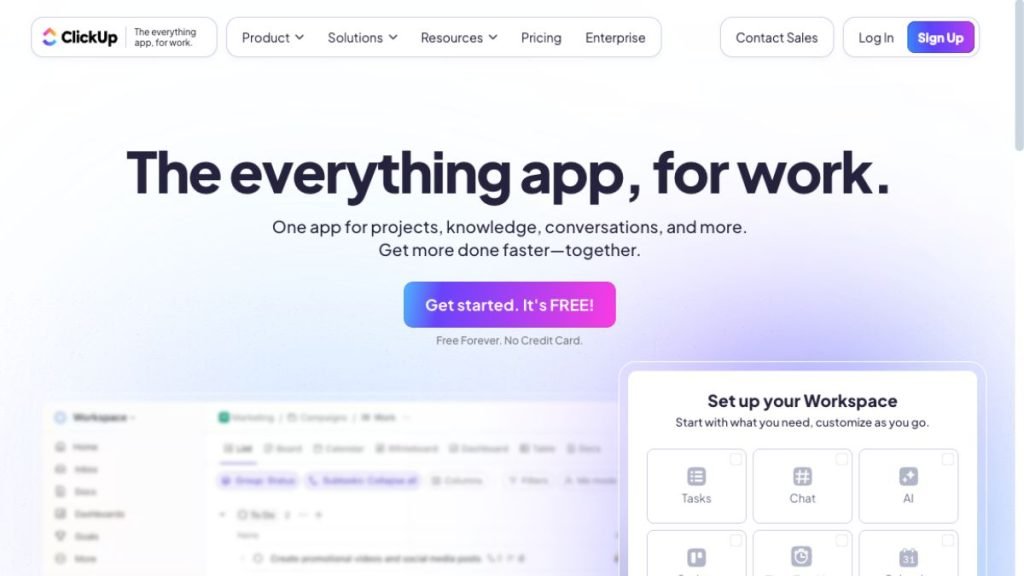
Running a startup feels like juggling flaming torches while riding a unicycle – everything’s moving fast, resources are tight, and one wrong move could spell disaster. That’s exactly why having the right free project management tools for startups isn’t just helpful; it’s absolutely crucial for survival and growth.
When you’re bootstrapping a company, every dollar counts. The good news? You don’t need to break the bank to get world-class project management software capabilities. Today’s market is flooded with powerful free project management tools that can rival expensive enterprise solutions, and I’m going to walk you through the best project management tools for small businesses available in 2025.
Why Startups Need Robust Project Management Software
Let’s be honest – most early-stage companies start with a chaotic mix of email threads, sticky notes, and whatever spreadsheet someone cobbled together at 2 AM. Sound familiar? This approach might work when you’re just two people in a garage, but it falls apart faster than a house of cards once you start scaling.
Project management for startups isn’t just about organization – it’s about survival in today’s competitive landscape.
The Hidden Costs of Poor Project Organization
Poor project management doesn’t just create confusion; it bleeds money. According to the Project Management Institute, organizations waste an average of $97 million for every $1 billion invested due to poor project performance. For small business project management, even a fraction of that waste can be catastrophic.
Think about it: when your team doesn’t know who’s doing what, deadlines get missed. When deadlines get missed, client relationships suffer. When client relationships suffer, revenue takes a hit. It’s a domino effect that can crush early-stage momentum before you even realize what’s happening.
Startup project management software eliminates these costly miscommunications by providing clear visibility into who’s responsible for what and when tasks need to be completed.
Scaling Challenges Without Proper Systems
Here’s what happens when startups try to scale without proper project management: communication becomes a game of telephone, tasks fall through cracks, and your team starts feeling like they’re running in circles. I’ve seen promising companies implode simply because they couldn’t coordinate their efforts effectively as they grew from five to fifteen people.
The beauty of implementing project management systems early is that they grow with you. Just like validation of your business ideas, establishing solid operational foundations from day one sets you up for sustainable success down the road.
Essential Features Every Startup Should Prioritize in Project Management Tools
Not all free project management software is created equal, especially when you’re working within the constraints of free plans. Here’s what you absolutely need to look for in project management tools for small teams:
Task Assignment and Progress Tracking Capabilities
Your tool needs to make it crystal clear who owns what and how things are progressing. Look for features like assignee tags, due dates, progress indicators, and status updates. The last thing you want is team members playing hot potato with responsibilities.
Team Collaboration and Communication Tools
Email is where productivity goes to die. Your project management tool should include built-in commenting, file sharing, and real-time notifications. Some tools even integrate with popular communication platforms like Slack or Microsoft Teams, creating a seamless workflow.
Budget and Resource Management Functions
Even on free plans, you need basic resource tracking. This might include time tracking, milestone management, and simple reporting features. These capabilities become especially important when you’re managing client projects or trying to optimize team productivity.
Integration with Existing Business Tools
Your project management system shouldn’t exist in isolation. Look for tools that play nicely with your existing tech stack – whether that’s Google Workspace, Microsoft 365, or specialized industry software. The more seamlessly everything connects, the less time your team spends switching between platforms.
Top Free Project Management Platforms for Small Teams in 2025
Let’s dive into the heavy hitters that offer substantial functionality without charging a dime. These are the best free project management tools that can transform your startup’s productivity:
Trello: Visual Kanban Board Simplicity
Trello revolutionized project management by making Kanban boards accessible to everyone. Its card-based system is incredibly intuitive – you create boards for projects, lists for different stages (like “To Do,” “In Progress,” “Done”), and cards for individual tasks.

The free project management plan supports unlimited personal boards, cards, and lists, plus up to 10 team boards. You can add due dates, attachments, and comments to cards, making it perfect for small team project management that needs visual organization without complexity. The drag-and-drop interface means zero learning curve, which is crucial when you need your team productive from day one.
Asana: Comprehensive Task Management Without the Price Tag
Asana strikes an impressive balance between simplicity and power, making it one of the top project management tools for startups. The free plan accommodates up to 15 team members and includes project timelines, custom fields, and basic reporting features. What sets Asana apart is its flexibility – you can view projects as lists, boards, timeline (Gantt charts), or calendar views.

The platform excels at breaking down complex projects into manageable subtasks and dependencies. You can create project templates, set up automated workflows, and even track goals and objectives. For startup project management that needs more structure than Trello but doesn’t want enterprise complexity, Asana hits the sweet spot.
Monday.com: Workflow Automation for Growing Teams
Monday.com’s free plan supports up to 2 seats, which might seem limiting, but it’s packed with features that punch above its weight class. The platform’s strength lies in its customizable workflows and automation capabilities. You can create custom statuses, automate repetitive tasks, and build sophisticated project templates.

The visual project tracking is exceptional – color-coded status updates, progress bars, and timeline views make it easy to spot bottlenecks at a glance. While the 2-user limitation might not work for larger teams, it’s perfect for founder-level project oversight or small core teams using free project management software.
ClickUp: All-in-One Workspace Solution
ClickUp is the Swiss Army knife of project management platforms. The free plan supports unlimited users (yes, unlimited!) and includes most features you’d expect from paid solutions. You get multiple project views, time tracking, goal setting, and even basic reporting.

What makes ClickUp special is its “everything app” approach. It combines project management, documentation, spreadsheets, and even basic CRM functionality in one platform. For cash-strapped startups that can’t afford multiple specialized tools, ClickUp can replace several separate applications, making it one of the best project management tools for small businesses.
Specialized Tools for Different Startup Needs
Different types of startups have unique requirements. Here’s how to match tools to your specific industry:
Development Teams: GitHub Projects and Jira Core
If you’re building software, GitHub Projects integrates seamlessly with your code repositories. It’s free for public repositories and includes issue tracking, project boards, and automated workflows. For more complex development processes, Atlassian’s Jira offers sophisticated issue tracking and agile project management, though the learning curve is steeper.
Creative Agencies: Figma and Adobe Creative Cloud Integration
Creative teams need tools that understand design workflows. Figma includes basic project management features for design collaboration, while tools like Notion can be customized to track creative projects with mood boards, client feedback, and approval workflows.
Service-Based Startups: Client Portal Solutions
Service providers need client-facing project visibility. Tools like Freedcamp offer client access features even on free plans, allowing customers to track project progress without overwhelming them with internal details.
Making the Most of Free Plan Limitations
Free tools come with constraints, but smart workarounds can maximize their value:
Understanding User Limits and Storage Restrictions
Most free plans limit either users, storage, or advanced features. Map out your exact needs before committing to a platform. Sometimes it’s better to have unlimited users with limited storage than the reverse, depending on your workflow.
Creative Workarounds for Advanced Feature Needs
Need advanced reporting? Export your data to Google Sheets for custom analysis. Want more automation? Use free tools like Zapier’s basic plan to connect your project management tool with other applications. The key is thinking creatively about feature combinations.
When to Consider Upgrading vs Switching Platforms
Set clear triggers for when you’ll upgrade or switch. Maybe it’s when you hit the user limit, need advanced security features, or require integrations that aren’t available on free plans. Having these criteria defined prevents reactive decision-making during crunch periods.
Security Considerations for Startup Data
Free doesn’t mean careless with your data. Here’s what to evaluate:

Data Protection Standards in Free Tools
Reputable providers like Asana, Trello (Atlassian), and Monday.com maintain enterprise-level security even on free plans. Look for SOC 2 compliance, data encryption, and clear privacy policies. Avoid tools that seem too good to be true – they often monetize by selling user data.
GDPR Compliance and Privacy Policies
If you’re handling client data or have international customers, GDPR compliance isn’t optional. Most major project management tools are compliant, but always verify this before storing sensitive information.
Access Control and Permission Management
Even basic free plans should offer user permission controls. You need the ability to restrict access to sensitive projects and control what team members can see or edit. This becomes critical as your team grows and you start working with contractors or part-time employees.
Implementation Strategies for Smooth Adoption
The best tool in the world is useless if your team won’t use it. Here’s how to ensure successful adoption:
Getting Team Buy-In and Reducing Resistance
Start by involving your team in the selection process. Let them test a few options and provide input. When people feel ownership over the decision, they’re much more likely to embrace the new system. Address concerns head-on and be transparent about why the change is necessary.
Migration from Spreadsheets and Email Chaos
Don’t try to migrate everything at once. Start with one project or team, prove the concept works, then gradually expand. Export existing data where possible, but don’t get bogged down trying to recreate every historical detail in your new system.
Training Resources and Learning Curves
Most free tools offer excellent documentation and training resources. Schedule team training sessions and designate “power users” who can help others get up to speed. Remember, sharing knowledge effectively with your team is just as important as having the right tools.
Building Your Integration Ecosystem
Modern startups use dozens of different tools. Your project management platform should play nicely with your existing tech stack:
Connecting with Popular Business Apps
Look for native integrations with tools you already use – Google Workspace, Slack, Dropbox, or time tracking apps. The fewer manual data entries required, the more likely your team will actually use the system consistently.
Automation Tools That Enhance Free Plans
Services like Zapier, Microsoft Power Automate, or IFTTT can supercharge free project management tools by creating automated workflows between different applications. For example, automatically create project tasks from new sales leads or update team chat channels when project milestones are completed.
Measuring Success and ROI
How do you know if your project management tool is actually helping? Track these key metrics:
Key Performance Indicators for Project Management
Monitor project completion rates, adherence to deadlines, and team productivity metrics. Most free tools provide basic reporting that shows these trends over time. Look for improvements in task completion rates and reductions in project delays.
Time Tracking and Productivity Metrics
Many free tools include basic time tracking features. Use this data to identify bottlenecks, optimize resource allocation, and provide more accurate project estimates to clients. This data becomes invaluable as you scale and need to make strategic decisions about hiring and resource allocation.
Time tracking also supports better client billing practices and helps you understand the true cost of different types of work. Understanding these operational fundamentals becomes crucial as your startup matures and needs more sophisticated financial management.
Future-Proofing Your Project Management Strategy
Your startup won’t stay small forever (hopefully!), and the project management system that works for five people might crumble under the weight of fifty. Smart founders think ahead and build flexibility into their operational foundation from day one.
Recognizing When to Graduate to Paid Solutions
Set clear criteria for when you’ll need to upgrade. Common triggers include hitting user limits, needing advanced security features, requiring custom integrations, or wanting sophisticated reporting capabilities. Having these benchmarks helps you budget for future tool expenses and prevents reactive decision-making during growth phases.
Here are the warning signs that it’s time to level up: your team is spending more time managing the tool than using it productively, you’re hitting storage or user limits regularly, clients are asking for features your free plan doesn’t support, or you need compliance features for enterprise customers.
Don’t wait until you’re in crisis mode to upgrade. When you’re closing big deals or onboarding major clients, the last thing you want is your project management system falling apart. Build upgrade costs into your growth projections and treat them as necessary infrastructure investments, not optional expenses.
Building Scalable Processes from Day One
Even with free tools, establish processes that can scale. Create project templates, define approval workflows, and document your team’s working methods. These processes matter more than the specific tool you’re using and will transfer seamlessly when you eventually upgrade.
Start documenting everything: how you handle client onboarding, your quality assurance procedures, communication protocols, and decision-making hierarchies. This documentation becomes invaluable when you’re training new team members or transitioning to more sophisticated tools.
Think about your current processes and ask yourself: “Would this still work if we had 10x more projects or team members?” If the answer is no, redesign it now while you have the flexibility to experiment. It’s much easier to refine processes with a small team than to overhaul broken systems during rapid growth phases.
Long-term Technology Investment Planning
Think of free project management tools as your training wheels, not your final destination. As your startup grows, you’ll likely need more sophisticated capabilities. Plan for this evolution by choosing tools that offer clear upgrade paths and won’t lock your data in proprietary formats.
Research the roadmaps of tools you’re considering. Many free tools are loss leaders designed to hook you into their paid ecosystems. That’s not necessarily bad – just understand the long-term costs and capabilities you’re signing up for. Tools like Asana and Monday.com have clear pricing tiers that grow with your needs, making transitions smoother.
Consider data portability from the beginning. Can you export your project data easily? Are there APIs available if you need custom integrations later? These questions might seem premature when you’re just starting out, but they become critical when you have years of project history and established workflows.
The project management tool landscape is constantly evolving, with new features and capabilities being added regularly. Stay informed about updates to your chosen platform and emerging alternatives that might better serve your growing needs. Set aside time quarterly to evaluate your tools and processes – what worked six months ago might not be optimal for where your company is headed.
Conclusion: Choosing the Best Free Project Management Tool for Your Startup
Choosing the right project management software for startups isn’t just about finding something free – it’s about finding something that grows with your business while keeping your team organized and productive today. Whether you choose Trello’s visual simplicity, Asana’s balanced feature set, or ClickUp’s comprehensive approach, the key is getting your team to actually use the system consistently.
Remember, the most expensive project management tool is the one that sits unused, gathering digital dust while your team reverts to email chaos. Start simple, focus on adoption, and scale up as your needs grow. With the right free project management tools for small businesses in place, your startup will be equipped to handle whatever challenges come your way.
The best project management tools for startups exist, they’re powerful, and they’re free. Now it’s time to stop juggling those flaming torches and start building something amazing with proper startup project management systems in place.












